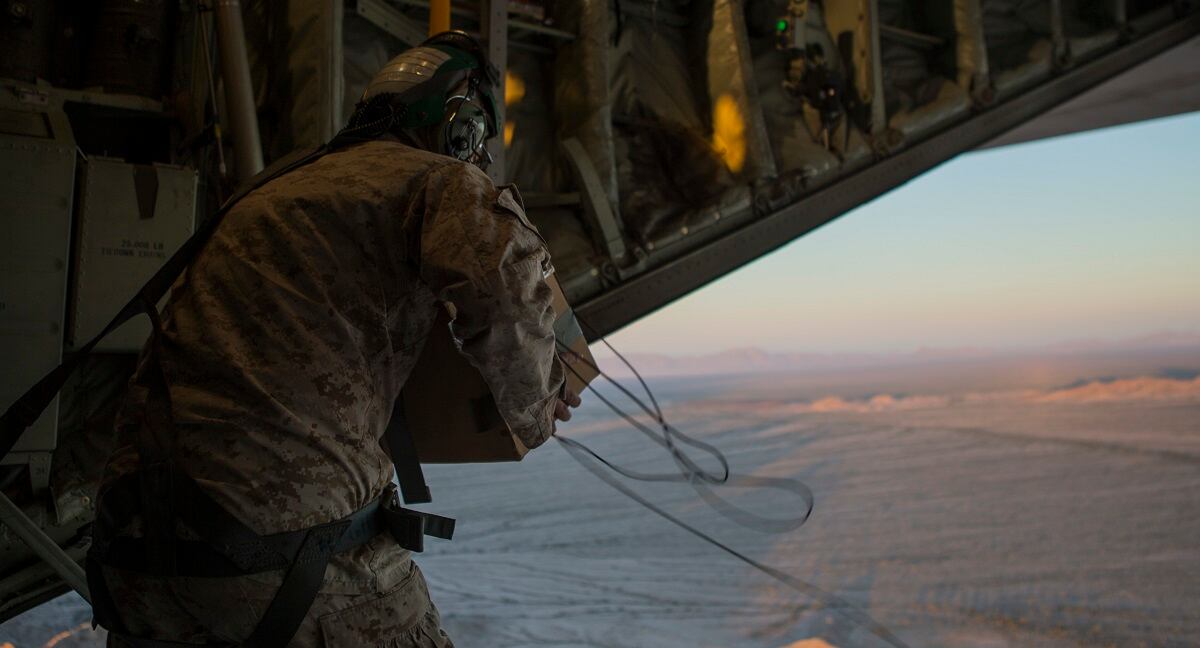The Marine Corps wants Devil Dogs to look at a career that’s all about getting inside the adversary’s head.
The Corps is expanding its psychological operations military occupational specialty by opening up lateral moves and offering reenlistment bonuses of between $30,000 to $40,000 depending on the Marine’s current enlistment status and qualifications.
“As a lateral move only MOS, our near term goal is to find and select the best-qualified candidates for the community,” Maj. Greg Carroll, with Headquarters Marine Corps’ Information, Plans and Strategy told Marine Corps Times.
A Marine with less than 10 years of service who is eligible to reenlist in the fiscal year 2022 can move into the 0521 MOS with a reenlistment bonus of between $30,240 and $37,800, Carroll said.
Zone A Marines, those with 17 months of service but not more than six years and reenlisting for the first time, are eligible for a $40,000 bonus, Carroll said.
RELATED

They’ll need to be either a corporal or sergeant from any MOS. Sergeants must have less than 18 months of time in grade. All lateral movers will commit to serve at least 48 months once approved for the MOS switch, according to the message.
Those who move won’t be alone.
The Corps aims to have 149 Marines with the 0521 MOS in its ranks next year. That will grow to at least 214 by fiscal year 2026, under current plans, Carroll said.
Or, as the MARADMIN put it, “The demand for qualified Marines to lateral move into the 0521 MOS will remain high for the foreseeable future.”
Carroll cited operational security concerns when asked how many 0521s there are currently in the force.
The Corps made the same call for psyops lateral moves in a MARADMIN in July 2020 before canceling the message.
That 2020 message categorized the move as due to a “critical career force skill shortage” in the Corps.
The Marines started offering bonuses as high as $40,000 as early as 2019 to begin building the force to at least 200, Military.com reported. That was shortly after the Corps announced the creation of the 0521 MOS in 2018.
The 2021 message laid out a more full-throated explanation of what Marines moving into this career field might be doing.
Major areas include conducting “military information support operations,” or MISO, providing “civil authorities information support,” or CAIS, or supporting “military deception,” or MILDEC.

The MISO missions communicate information and indicators to foreign organizations, groups and individuals, “to influence their emotions, motives, objective reasoning, and ultimately their behavior in a manner favorable to the Commander’s objectives.”
CAIS missions aid civilian populations during humanitarian and disaster relief, by “disseminating critical information intended to support the rescue effort.”
MILDEC missions intend to “deter hostile actions, increase the success of friendly defensive actions, or to improve the success of any potential friendly offensive actions.”
The Corps plans to use psyops at various levels and with different types of units. Those units include the combatant commands, Marine Expeditionary Force Information Group, or MIG, and at Marine Corps Special Operations Command, according to the message.
The Army has been revamping its psychological operations force, especially during the shift to Great Power Competition, which includes the “competition” phase along the continuum between something like peace and full-scale armed conflict.
In the early 2010s, the Army changed its psyops field name to military information support operations, or MISO. But, in 2017, the service switched back to psychological operations.
The MISO switch was to show the broader work of soldiers in the field that went beyond propaganda and into influence operations, disinformation and countering adversaries’ narratives.
Todd South has written about crime, courts, government and the military for multiple publications since 2004 and was named a 2014 Pulitzer finalist for a co-written project on witness intimidation. Todd is a Marine veteran of the Iraq War.





